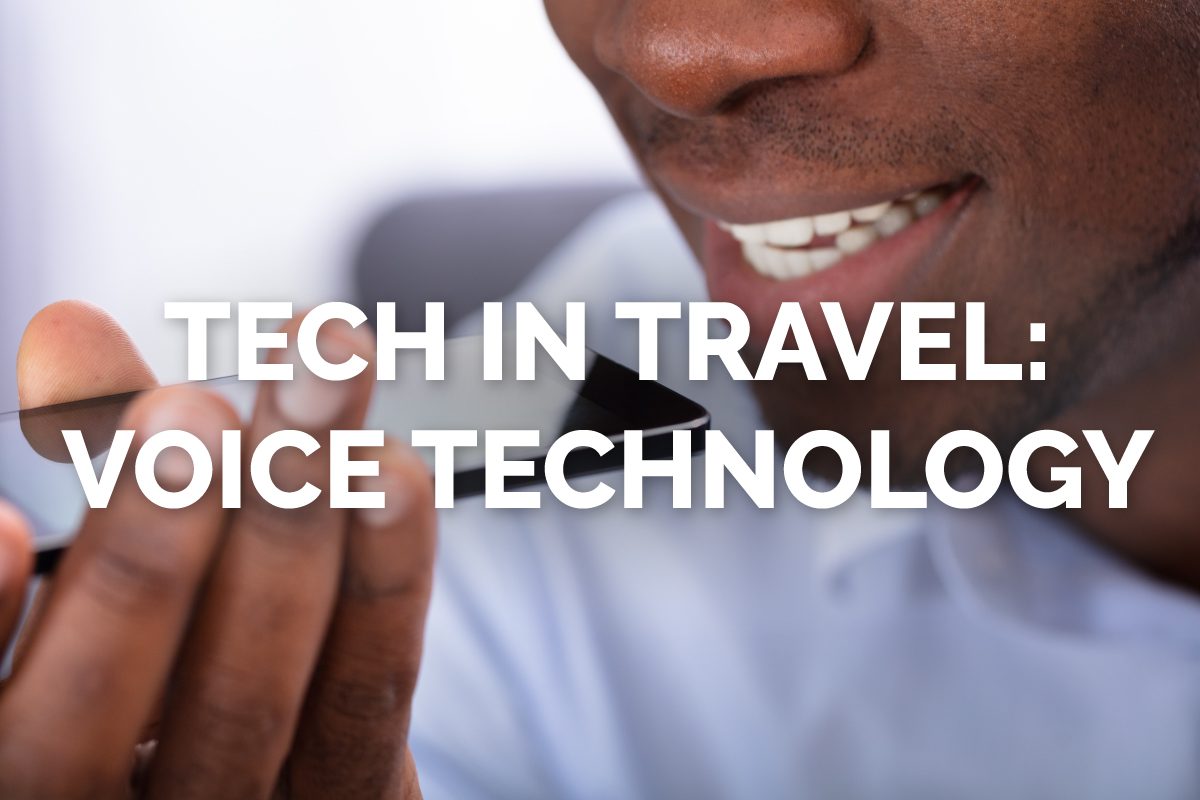As smart speaker usage grows, its effects are being felt by the travel industry. From reserving rental cars to learning what and how to pack, voice tech is affecting the way people travel. Keep reading to see what changes you can expect in the near future.
Voice tech in travel is only going to grow
It’s predicted that next year, 50% of all Google searches will come from voice commands. Clearly, voice tech is not going away and the travel industry should be prepared to adapt to this evolving trend.
Expedia now works with Alexa
Travelers who book with Expedia can use Amazon’s Alexa to request everything from booking car rentals to inquiring about flight details like which terminal to go to. Other smart speaker producers are sure to incorporate the same voice tech in order to stay competitive.
Airlines are experimenting with voice tech
KLM recently launched a new “Smart Pack” app for Google Home. Travelers can tell the speaker where they’re going and the app will advise them on what to pack based on the weather at their destination and the length of their trip. Additionally, it can recommend activities to do in the area. Assuming this app takes off – pun intended – one can only predict other airlines will make use of voice tech as well.
Voice searches save travelers time
Despite the frequent use of mobile phone keyboards, talking aloud is still the fastest way to communicate information. It’s also more convenient. When travelers are busy navigating through an airport with piles of luggage, the last thing they want to do is stop and check a flight board for information. As voice tech grows, they could simply ask their phone or smart headphones for information on their gate, terminal, even where to find the bathroom at the airport.
Voice tech can ease the language barrier
Google Pixel Buds can translate languages in real time. This can be a huge relief to travelers who don’t speak the local languages. In fact, this technology could broaden lots of travelers’ horizons since there is no fear of not speaking the language. Hotels can use smart speakers to assist guests who may not speak the local language, ensuring a smooth booking process.
Voice tech could make for fiercer competition
You’re probably familiar with the lengths websites go to for the coveted top place in Google search results. Competition will be even fiercer as voice tech becomes more mainstream. Companies may have to shell out top dollar in order to be mentioned to customers by smart speakers. While all this is speculation and remains to be seen, it will be interesting to see how travel providers, travel agents, and others in the industry must adapt to compete in the age of voice commands.
Voice tech could provide better personalization for travelers
As voice tech becomes more mainstream, we could see a future where guests can adjust their hotels’ lighting, turn on the TV, order room service, speak to the front desk, and more – all with simple voice commands. Travelers could even use smart speakers to request information on local events and things to do rather than go all the way to the front desk to speak to the concierge.
Voice tech will not replace travel agents
If you’re a travel agent and you’re worried your job will be replaced by robots – fear not! It’s one thing to ask a smart speaker for your flight’s time. Dealing with major travel headaches is another matter entirely. When flights are cancelled, baggage is lost, or some other act of god intervenes in your clients’ travel plans, the smart speakers simply won’t be able to deal with it.
Keep up your competitive edge by working with Sky Bird. Register for free to gain access to our WINGS booking engine and take advantage of our no-cap commissions. Click here to get started.

